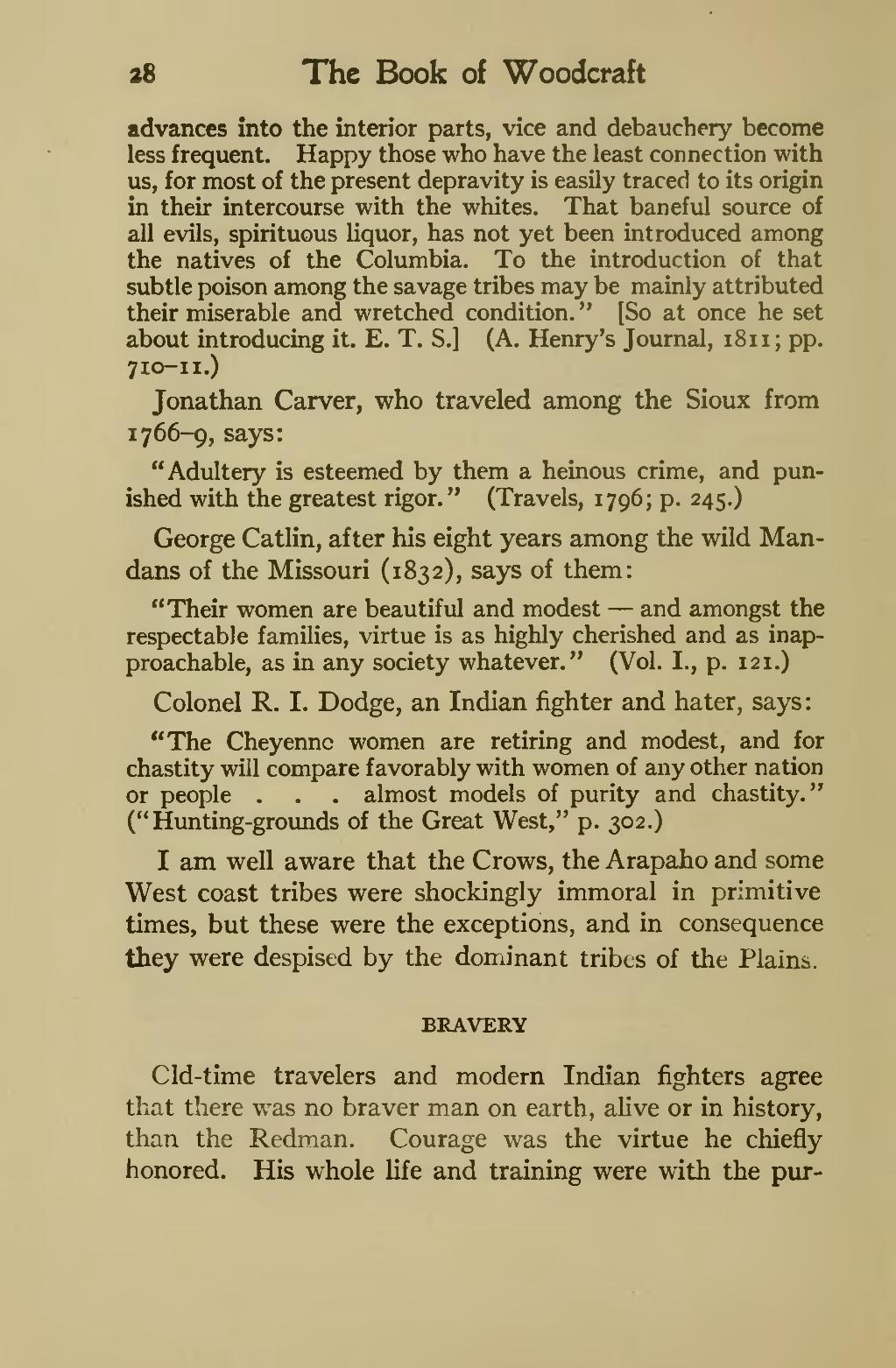28 The Book of Woodcraft advances into the interior parts, vice and debauchery become less frequent. Happy those who have the least connection with us, for most of the present depravity is easily traced to its origin in their intercourse with the whites. That baneful source of all evils, spirituous liquor, has not yet been introduced among the natives of the Columbia. To the introduction of that subtle poison among the savage tribes may be mainly attributed their miserable and wretched condition." [So at once he set about introducing it. E. T. S.] (A. Henry's Journal, 1811; pp. 710-11.) Jonathan Carver, who traveled among the Sioux from 1766-9, says: "Adultery is esteemed by them a heinous crime, and pun- ished with the greatest rigor." (Travels, 1796; p. 245.) George Catlin, after his eight years among the wild Man- dans of the Missouri (1832), says of them: "Their women are beautiful and modest — and amongst the respectable families, virtue is as highly cherished and as inap- proachable, as in any society whatever." (Vol. I., p. 121.) Colonel R. I. Dodge, an Indian fighter and hater, says: "The Cheyenne women are retiring and modest, and for chastity will compare favorably with women of any other nation or people . . . almost models of purity and chastity." ("Hunting-grounds of the Great West," p. 302.) I am well aware that the Crows, the Arapaho and some West coast tribes were shockingly immoral in primitive times, but these were the exceptions, and in consequence they were despised by the dominant tribes of the Plains. BRAVERY Cld-time travelers and modern Indian fighters agree that there was no braver man on earth, alive or in history, than the Redman. Courage was the virtue he chiefly honored. His whole life and training were with the pur-
Stránka:book 1922.djvu/58
Z thewoodcraft.org
Tato stránka nebyla zkontrolována
